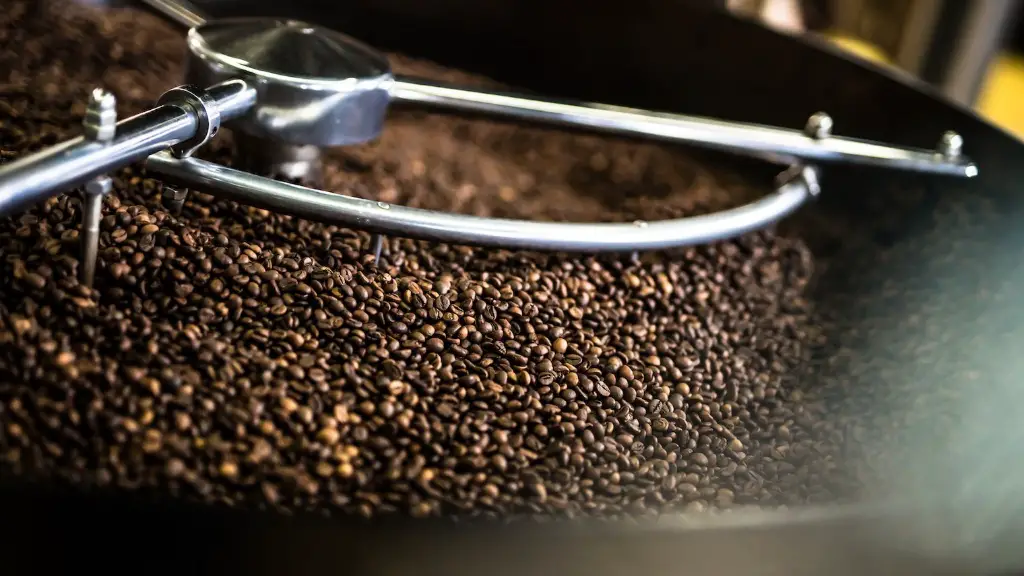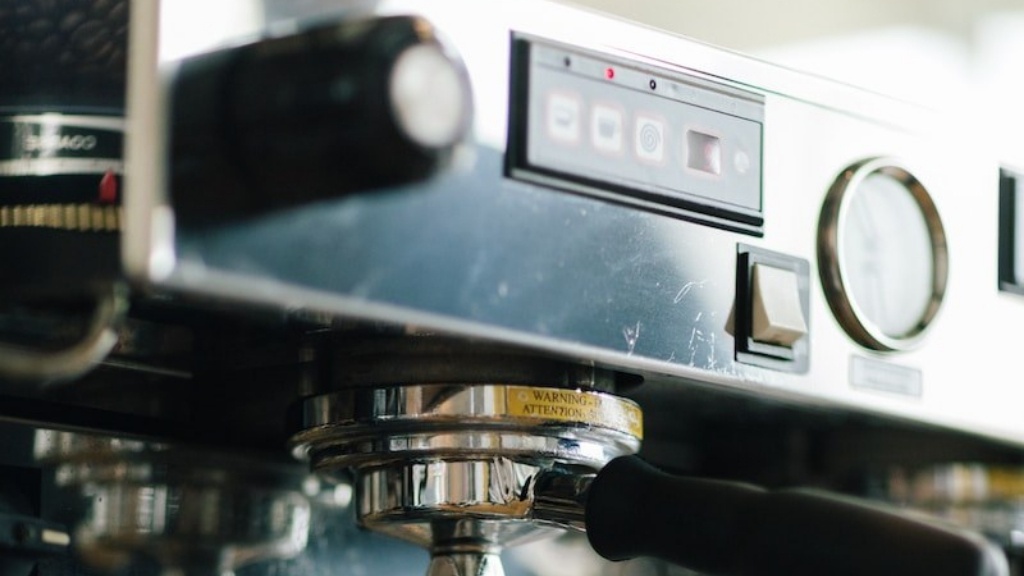Introduction
The question of whether kids can drink coffee has been asked for many years and, unfortunately, there is no straightforward answer for this. Whilst the advantages of drinking coffee may be beneficial for adults, it isn’t necessarily beneficial for children and so it is important to understand the health implications of consuming this caffeinated drink. So, in order to help make an educated decision on whether a child should drink it or not, this article will look into both the pros and cons of drinking coffee, provide relevant data and perspectives from experts, discuss the appropriate intake levels, and finally explain the effects of caffeine on the developing body of a child.
Pros and Cons of Drinking Coffee
For adults, coffee can be a great source of energy and can even offer some health benefits. Packed with antioxidants, caffeine has been known to reduce the risk of Alzheimer’s disease, diabetes, and some cancers. However, the same can’t necessarily be said for children as their body and brain are still developing. Whilst drinking coffee can provide a boost of energy, there can equally be negative consequences as children can become over-stimulated and have difficulty sleeping. As a result, experts agree that it is best for children to focus on getting enough rest and achieve better energy levels through exercise and healthy eating rather than consuming coffee at an early age.
Relevant Data and Perspectives from Experts
A study published in 2020 showed that 95% of Australian teenagers drink coffee and this steadily increased from 82% in 2005 for boys and 86% for girls. This suggests that young people are increasingly viewing coffee as a legitimate beverage choice despite the well-known effects of caffeine on their developing body and brain. When asked their opinion on whether they think it is safe for children to drink coffee, over 90% of industry experts strongly disagreed as to avoid possible long-term health complications and to ensure they get adequate rest and energy in the day.
Appropiate Intake Levels
In general, the American Academy of Pediatricians recommends that children should be discouraged from drinking coffee. If a child really wishes to drink coffee, then the pediatrician-recommended daily limit for 8-12 year olds is no more than 100mg of caffeine, which equates to about 1/4 cup of regular ground coffee per day. While it is true that some adults may be able to consume larger amounts of coffee, it is important to remember that a child’s body is more sensitive to the effects of caffeine and, as such, it is best for a child to stay within the recommended limit for safety reasons.
Effects of Caffeine on the Body
The effects of caffeine on the body of a child can be quite varying as every child is different. Generally, the effects depend on the child’s age, size and overall health condition. However, some common side effects include trouble concentrating, restlessness, irritability, increased heart rate and difficulty sleeping. In addition to this, the American Academy of Pediatrics also states that drinking coffee can lead to anxiety and, in some cases, even possibly impulsive or unpredictable behavior.
Is it Necessary?
The answer to this question really depends on the individual child. Whilst caffeine can provide a quick boost of energy, it is important to remember that there are healthier and more sustainable ways to gain energy. Eating healthy meals, exercising regularly, and getting enough sleep are all great ways to ensure that a child has enough energy throughout the day. In addition to this, parents can also provide their children with natural energy boosters such as green tea, which has less caffeine compared to coffee. As such, whilst the occasional cup of coffee may be ok for a child, it should be avoided on a regular basis.
Is it Safe?
As mentioned previously, medical experts advise that parents should avoid giving coffee to their children as the potential negative effects outweigh the short-term benefits. Caffeine is a stimulant drug and, if consumed in large amounts, can have serious side effects on a growing body. As a general rule, it is safest to keep caffeine intake to a minimum, or better yet, abstain from it altogether.
Is there a Healthy Alternative?
Whilst it may not seem like it, there are healthy coffee alternatives that are suitable for children. For instance, herbal teas such as chamomile or lemon balm are both caffeine-free and provide a great source of energy. In addition to this, there are also a number of natural energy drinks available, such as coconut water, which can provide the same benefits of coffee but without the potential health risks.
Are there any Benefits?
Whilst there are numerous potential risks associated with consuming coffee, there may be some benefits for certain children. For instance, coffee can provide children with a boost of energy when they are feeling particularly sluggish. However, it is important to note that coffee should be consumed in moderation as excess intake can lead to negative side effects. To reduce this risk, parents can opt for coffee alternatives such as herbal teas or natural energy drinks.
Alternative Uses for Coffee
Coffee isn’t just for drinking. It can also be used for a range of other purposes. For example, mixing ground coffee into a facial scrub can help to exfoliate the skin and reduce redness. Coffee can also be used to make a fragrant potpourri by mixing it with essential oils, dried flowers, and spices. Finally, it can be used to clean and polish furniture as the acidity helps to break down dirt and grime.
Effects of Caffeine on Teeth
Whilst drinking coffee can be beneficial in moderate amounts, it is important to consider the effects on teeth as coffee is highly acidic. As a result, regular consumption of coffee can cause teeth to become discolored, leading to staining. It is therefore important to ensure that teeth are kept clean and that coffee is consumed in moderation.
Caffeine Addiction
Whilst drinking coffee in moderation is generally ok, it is important to be aware of the effects of caffeine addiction. Much like other stimulants, the body can become dependent on caffeine and require increasing amounts to achieve the same level of effects, leading to addiction. As such, it is important to keep an eye on caffeine intake and maintain balanced levels to avoid any potential addiction.
Alternatives for Kids
Whilst coffee is not recommended for children, there are plenty of other options for them to have a quick energy boost. Choices such as smoothies, energy bars, nut butter, and even dark chocolate are all great alternatives for kids as they are not only healthy but are also packed with the essential vitamins and minerals. Some more unusual options may include kombucha, bee pollen, and matcha, which can all provide a natural energy boost without any of the negative side effects associated with coffee consumption.
Health Implications of Caffeine on Children
It is important to bear in mind that consumption of caffeine can have long-term health implications on a child’s body, including increased risk of heart disease, anxiety, and type 2 diabetes. Therefore, it is important to ensure that children consume only the recommended amount of caffeine and to avoid excessive intake of coffee or other caffeinated beverages.
Education About Caffeine and its Effects
It is essential that parents educate their children about the effects of caffeine on their body and mind. Considering the fact that many studies have shown that children as young as 8 have access to, and consume caffeine, it is important for parents to be aware of the potential risks and to also provide an educational platform for their children to learn more about the effects of this stimulant.
Developing a Balanced Approach to Caffeine
Whilst it is best to avoid giving coffee to young children due to the potential health risks associated, it is not recommended to completely deny them of the beverage altogether. Instead, it is important to develop a balanced approach to caffeine consumption and to ensure that they are only consuming moderate amounts. This way, children are able to enjoy the occasional cup of coffee without having to compromise their health.
Talk to a Doctor
If parents are still uncertain as to whether they should allow their child to consume coffee, then they should always discuss this with their child’s doctor before making any decisions. Whilst coffee can be a source of energy, it can also be detrimental to a child’s health and, as such, it is best to consult a medical professional before making any choices.




